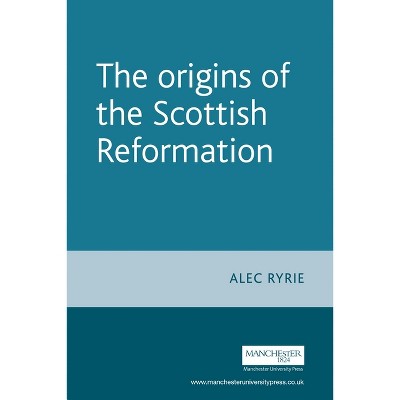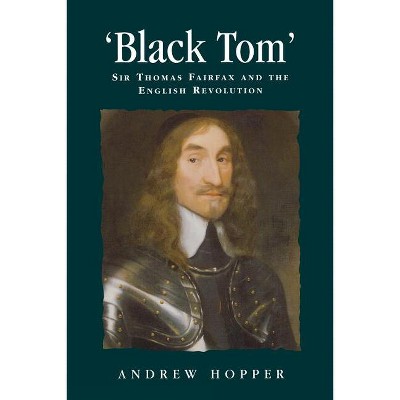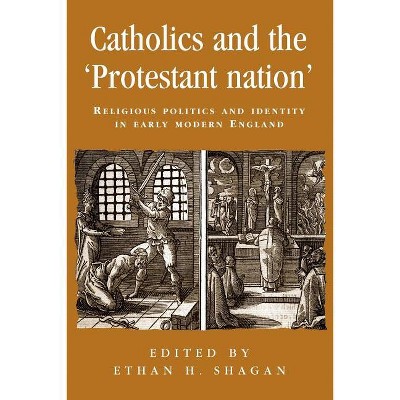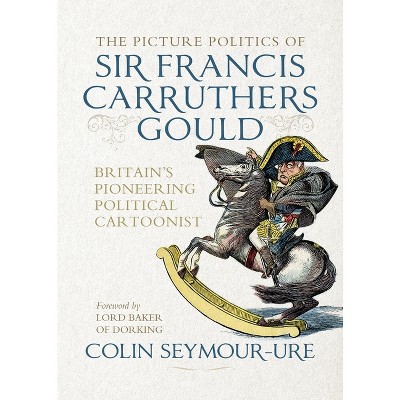Sponsored

Sir Robert Filmer (1588-1653) and the Patriotic Monarch - (Politics, Culture and Society in Early Modern Britain) by Cesare Cuttica (Paperback)
In Stock
Sponsored
About this item
Highlights
- This book studies the patriarchalist theories of Sir Robert Filmer (1588-1653) in the context of early modern English and European political cultures.
- About the Author: Cesare Cuttica is Marie Curie Fellow in Intellectual History in the Department of History at University of Sussex
- 296 Pages
- Biography + Autobiography, General
- Series Name: Politics, Culture and Society in Early Modern Britain
Description
About the Book
Looks at one of the most unpopular and criticised thinkers in the history of political thought, to provide an illuminating and innovative picture of Sir Robert Filmer (1588-1653) and patriarchalism. This thoroughly researched work will appeal to all those interested in early modern politics and ideas.Book Synopsis
This book studies the patriarchalist theories of Sir Robert Filmer (1588-1653) in the context of early modern English and European political cultures. Making use of unexplored primary material and adopting an innovative contextual approach, Cuttica provides a long-overdue account of an often referred-to but largely misunderstood thinker. By focusing on Filmer's most important writing, Patriarcha (written in the 1620s-30s but published in 1680), this monograph rethinks some crucial issues in the reading of political history in the seventeenth century. Most importantly, it invites new reflections on the theory of patriarchalism and gives novel insights into the place of patriotism in the development of English political discourse and identity.
Thanks to its originality in both approach and content, this volume will be of interest to historians of early modern England as well as scholars of political thought.From the Back Cover
This book studies the patriarchalist theories of Sir Robert Filmer (1588-1653) in the context of early modern English and European political cultures. Making use of unexplored primary material and adopting an innovative contextual approach, Cuttica provides a long-overdue account of an often referred-to but largely misunderstood thinker. By focusing on Filmer's most important writing, Patriarcha (written in the 1620s-30s but published in 1680), this monograph rethinks some crucial issues in the reading of political history in the seventeenth century. Most importantly, it invites new reflections on the theory of patriarchalism and gives novel insights into the place of patriotism in the development of English political discourse and identity.
Departing from the scholarly mainstream, Cuttica casts light on the following decisive questions: who was the "real biographical" Filmer? What do we know about the much commented upon but scarcely studied Patriarcha? What reasons urged Sir Robert to compose his writings? What targets did he choose to attack and why? What made Filmer similar or different from other monarchist thinkers in the Caroline reign? Why did Patriarcha find a vast audience in the 1680s? What is the political and argumentative value of patriarchalism? Did Filmer exclusively discuss political issues or did he formulate concepts on other relevant subjects debated within the republic of letters? Thanks to its originality in both approach and content, this volume will be of interest to historians of early modern England; scholars of political thought; political scientists; gender theorists; graduate, postgraduate and post-doctoral researchers in intellectual history and the aforementioned disciplines.Review Quotes
Cuttica's book offers an accessible guide to Filmer's thought useful for students of intellectual history.
Cuttica's book is a very good case study, which hopefully will change the perception of Filmer's theory, which until now has been seen through the lenses of its critic, John Locke. In this splendid study, Cesare Cuttica uses contextual and biographical methods to enhance our understanding of Sir Robert Filmer's intellectual life and his contribution to political debates in seventeenth-century England.This book can be highly recommended and deserves to be widely read. Cesare Cuttica's work is the most comprehensive and convincing criticism of such an interpretation.
This is undoubtedly a brilliant study of Filmer's political thought. This extremely rich book is a major contribution to our knowledge of Filmer, and more broadly of patriarchy in the seventeenth century, primarily in England.
[Pierre Lurbe; RSEAA XVII-XVIII 70 (2013)] Cuttica succeeds in presenting his reader with innovative, clear and well-argued information based on his contextualisation and biographical methods. In this way, he provides the reader with new insights and contributes significantly to our understanding of seventeenth-century English intellectual and political history. It is a major contribution to current studies of political thought. ...Cuttica has given us a Filmer with a new significance, and that itself is an unexpected and most welcomed contribution.
About the Author
Cesare Cuttica is Marie Curie Fellow in Intellectual History in the Department of History at University of Sussex
Shipping details
Return details
Trending Non-Fiction











